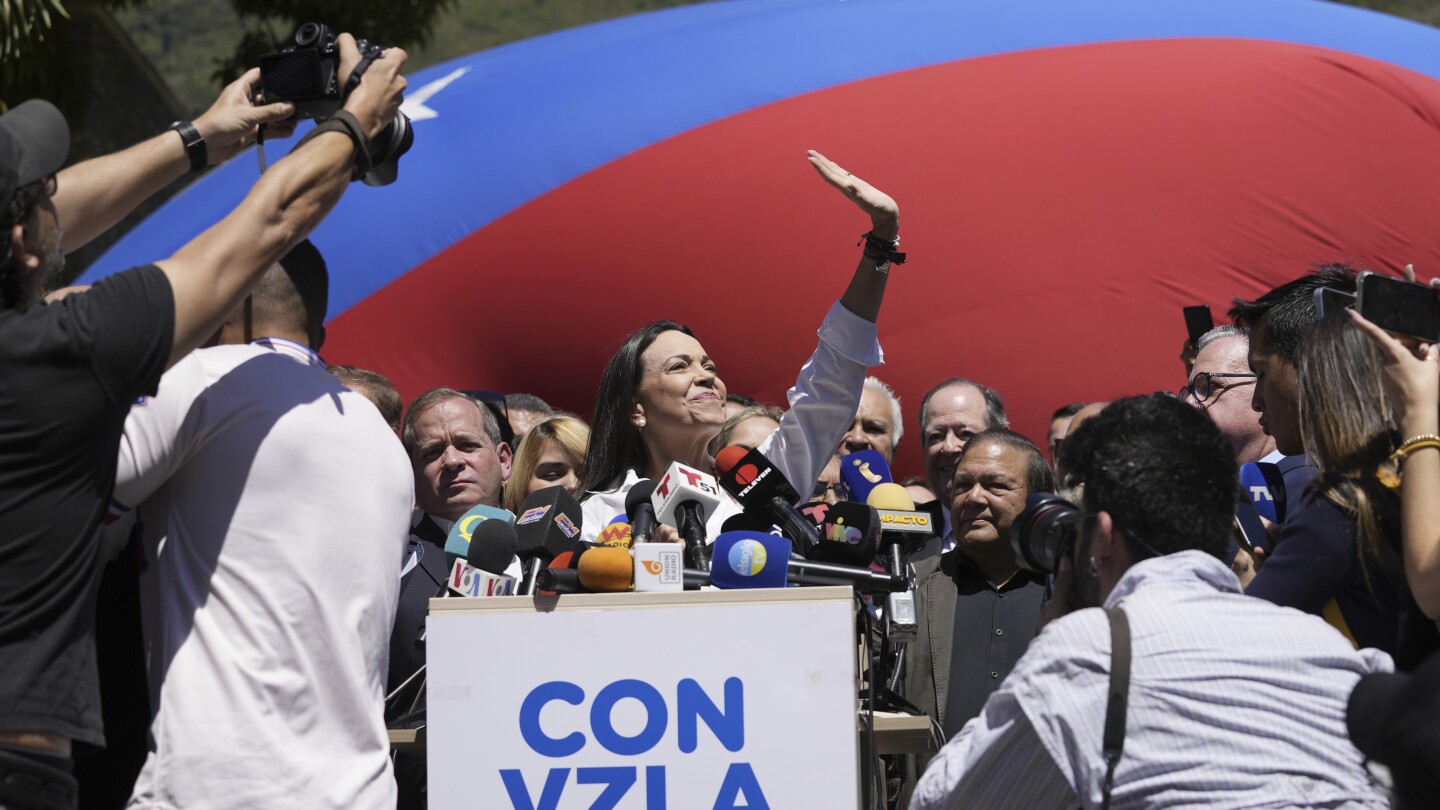CARACAS, Venezuela (AP) — Venezuelan opposition leader María Corina Machado on Monday called the court ruling blocking her presidential candidacy last week “judicial criminality” and vowed to stay in the race, declaring that the decision embodies the ruling party’s fear of having to face her at the polls.
Machado, surrounded by supporters and other opposition leaders, told reporters she expects government repression and other obstacles to increase against her and her team.
She would not explain the steps she plans to take to be allowed to participate in the presidential election, only insisting that her team continues to organize across the South American country.
“It cannot be called a sentence. It is not even an arbitrary decision. This is called judicial criminality,” Machado said of Friday’s ruling by the Supreme Tribunal of Justice. “If they believe that they declared my disqualification, then let them know well, they declared the end of this tyranny … because people are clear and are not going to allow themselves to be stripped of their Oct. 22 decision.”
The former lawmaker won a presidential primary in October by the faction of the opposition backed by the United States. She secured more than 90% of the vote despite the government of President Nicolás Maduro announcing a 15-year ban on her running for office days after she formally entered the race.
The longtime government foe was able to participate because the primary was organized by a commission independent of Venezuela’s electoral authorities. Machado insisted throughout the campaign that she never received official notification of the ban and said voters, not ruling party loyalists, were the rightful decision-makers of her candidacy.
In December, Machado filed a claim with the tribunal, Venezuela’s highest court, arguing the ban was null and void and seeking an injunction to protect her political rights. Instead, the court upheld the ban, which alleges fraud and tax violations and accuses her of seeking the economic sanctions the U.S. imposed on Venezuela in the last decade.
Friday’s ruling came more than three months after Maduro and the U.S.-backed opposition reached a deal to work on basic conditions for a fair election. They agreed to hold the election in the second half of 2024, invite international electoral observers and create a process for aspiring presidential candidates to appeal their bans. A date for the election has not been set.
Friday’s ruling has been condemned by the Biden administration, the Organization of American States and about 30 political leaders from Spain and Latin America. The U.S. government on Saturday said it is reviewing its sanctions policy on Venezuela as a result of the decision.
The court and the National Electoral Council, the country’s electoral body, are stacked with people affiliated with the ruling party. The head of the electoral council is now Elvis Amoroso, who signed Machado’s administrative ban last year.

